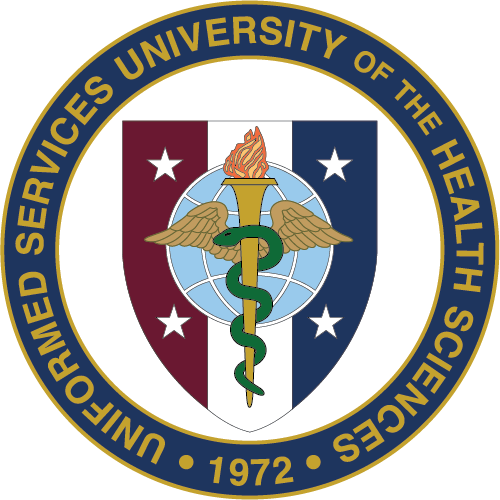The Uniformed Services University of the Health Sciences (USU) is the nation’s federal health professions academy — akin to the undergraduate programs of the U.S. military academies at West Point, Annapolis and Colorado Springs. And like the academies, students are not charged tuition; they repay the nation for their education through service. In many respects, USU’s curricula and educational experiences are similar to those of civilian academic health centers, with one important difference: its emphasis on military health care, leadership, readiness and public health set USU apart.
The F. Edward Hébert School of Medicine offers doctorate degrees in medicine, doctorate and master’s degrees in public health and related disciplines, doctorate degrees in medical and clinical psychology, and interdisciplinary Ph.D. degrees in three military-relevant areas of science: molecular and cell biology, neuroscience and emerging infectious diseases. To enroll, students must be U.S. citizens and have a bachelor’s degree from an accredited college or university in the U.S., a U.S. territory or Canada. Each year approximately 30 percent to 40 percent of incoming students have prior service either as academy graduates, ROTC program participants or as service members. The remainder come from civilian backgrounds with no prior military experience.
Medical students are commissioned as junior officers in their chosen service — Army, Navy, Air Force or U.S. Public Health Service. They are on active duty throughout their education and are compensated as such. Upon completion of their education (including residency), they owe seven years service to the nation. More than 60 percent of USU graduates willingly serve 20 years or longer.
USU graduate students, both military and civilian, pursue doctoral (and some master’s) degrees in public health, clinical psychology or the biomedical sciences. Students must be citizens to qualify for stipends from appropriated funds. The high caliber of USU’s basic science departments, research centers and the University’s partnerships with the NIH and several national labs provide an extraordinarily rich environment for scientific discovery and professional growth.



